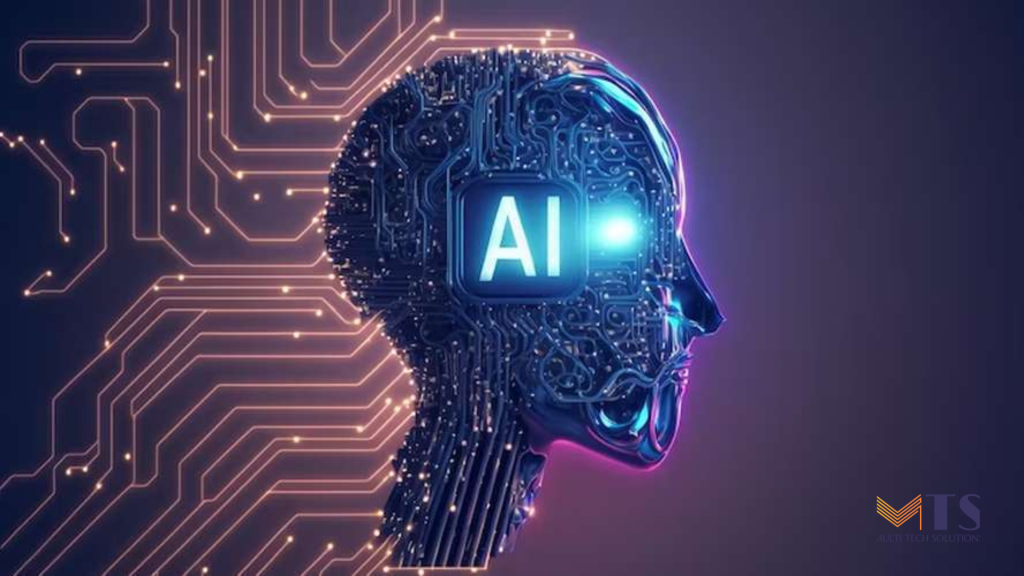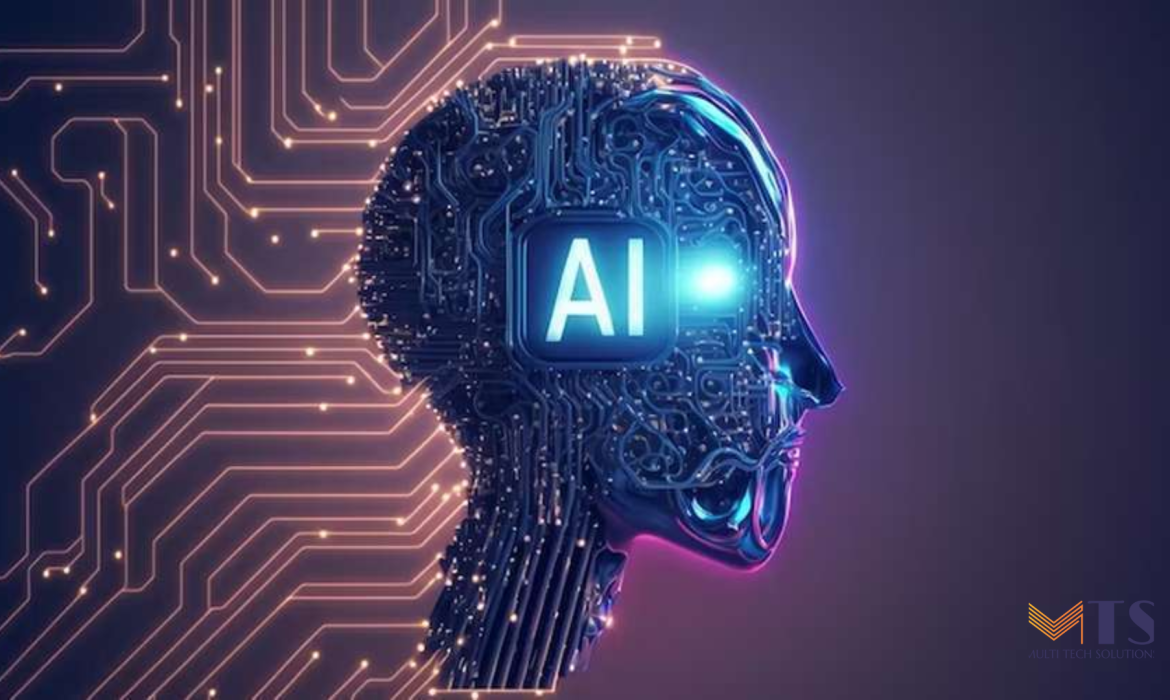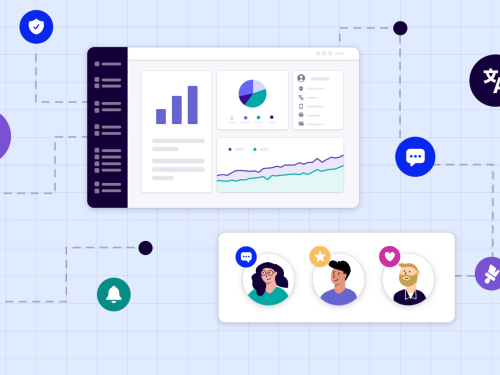
In today’s rapidly evolving digital landscape, businesses are constantly seeking innovative solutions to enhance their efficiency, reduce costs, and gain a competitive edge. One technology that has emerged as a game-changer in this pursuit is Artificial Intelligence (AI). With its ability to mimic human intelligence, AI is revolutionizing various sectors, including business automation. In this blog post, we will delve into the world of AI and its immense potential for automating business processes. From intelligent data analysis to virtual assistants and predictive analytics, we will explore the diverse applications of AI in transforming business operations.
Section 1: Understanding Artificial Intelligence and Business Automation
Artificial Intelligence, or AI, refers to the development of computer systems capable of performing tasks that typically require human intelligence. Business automation, on the other hand, involves using technology to automate repetitive and time-consuming processes, enabling organizations to streamline their operations and increase productivity. When AI and business automation come together, they create a powerful synergy that can drive organizational growth and efficiency.
Now that we have a basic understanding of AI and business automation, let’s delve deeper into the key benefits that AI brings to the table.
Section 2: Enhanced Efficiency and Productivity
AI-powered automation enables businesses to achieve new levels of efficiency and productivity. By automating mundane and repetitive tasks, employees can focus their time and energy on more strategic and value-added activities. For instance, AI algorithms can automate data entry and processing, freeing up employees to concentrate on analyzing insights and making informed decisions. This enhanced efficiency not only boosts productivity but also enables organizations to allocate their resources more effectively.
Beyond efficiency gains, AI offers the ability to leverage vast amounts of data for valuable insights and predictive analytics.
Section 3: Intelligent Data Analysis
Data is the lifeblood of businesses today, and AI can play a significant role in extracting meaningful insights from vast datasets. With advanced machine learning algorithms, AI systems can analyze data patterns, identify trends, and make predictions. This empowers businesses to make data-driven decisions with higher accuracy and efficiency. By automating data analysis, AI eliminates human biases and ensures a more objective and reliable analysis of business-critical information.
AI’s ability to automate and optimize processes extends beyond data analysis. Let’s explore how AI-driven virtual assistants can revolutionize customer service and support.
Section 4: Virtual Assistants for Enhanced Customer Experience
AI-powered virtual assistants have gained immense popularity in recent years, transforming the way businesses interact with their customers. Virtual assistants equipped with natural language processing capabilities can engage in human-like conversations, providing instant and personalized customer support. Whether it’s answering frequently asked questions, resolving issues, or providing product recommendations, virtual assistants enhance customer experience by delivering prompt and accurate responses. This round-the-clock availability ensures superior customer service and fosters customer loyalty.
Moving forward, let’s explore how AI-driven automation can optimize resource allocation and improve operational efficiency.
Section 5: Optimized Resource Allocation
Resource allocation is a critical aspect of business operations, and AI can optimize this process by analyzing historical data and real-time information. AI algorithms can identify patterns, demand fluctuations, and market trends, enabling businesses to allocate their resources more effectively. For example, AI-powered demand forecasting models can help businesses optimize inventory levels, reducing the risk of overstocking or stockouts. This leads to cost savings, minimized wastage, and improved customer satisfaction through timely delivery of products and services.
In addition to operational efficiency, AI can also assist organizations in making accurate predictions and informed decisions.
Section 6: Predictive Analytics for Informed Decision-Making
AI’s ability to analyze vast datasets and identify patterns enables organizations to leverage predictive analytics for informed decision-making. By using historical data, market trends, and other relevant factors, AI algorithms can generate accurate forecasts, such as sales predictions or customer behavior analysis. These insights empower businesses to make proactive decisions, anticipate market changes, and stay ahead of the competition. With AI-driven predictive analytics, organizations can optimize their strategies, improve ROI, and drive business growth.
As AI continues to evolve, its impact on business automation goes beyond traditional applications. Let’s explore some emerging trends in AI that have the potential to reshape the future of automation.
Section 7: Emerging Trends in AI and Automation
Robotic Process Automation (RPA): RPA combines AI and robotic technologies to automate repetitive tasks across various systems and applications, improving accuracy and speed.
Cognitive Automation: Cognitive automation focuses on mimicking human thought processes, enabling AI systems to understand, learn, and make decisions based on complex data.
Intelligent Document Processing: AI-powered systems can extract relevant information from documents, automate data entry, and enable seamless integration with other business processes.
Autonomous Vehicles: AI plays a pivotal role in self-driving cars, revolutionizing the transportation industry and paving the way for a future with safer, more efficient vehicles.
With the expanding role of AI in business automation, it is essential to address concerns and challenges associated with its implementation.
Section 8: Addressing Challenges and Concerns
While AI presents incredible opportunities for business automation, it also comes with challenges. Privacy concerns, data security, ethical considerations, and the potential for job displacement are among the key concerns. Organizations must ensure robust data protection measures, adhere to ethical guidelines, and proactively plan for the workforce transition to harness AI’s potential effectively.
Concluding, Artificial Intelligence is transforming the landscape of business automation, empowering organizations to achieve unparalleled efficiency, productivity, and growth. From intelligent data analysis to virtual assistants and predictive analytics, AI offers a wide array of applications to streamline operations, optimize resource allocation, and enhance decision-making. By embracing AI and leveraging its power, businesses can stay ahead in today’s competitive environment and unlock new possibilities for success.



